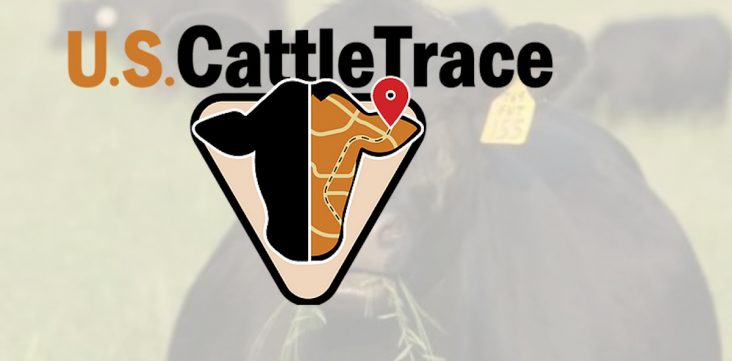Tyson Foods joins U.S. cattle traceability program
by April 21, 2021 12:38 pm 1,100 views

Tyson Foods is the first beef packer to join and invest in the U.S. CattleTrace, an industry consortium formed by multiple state cattleman’s organizations to reduce the risk animal disease poses on the U.S. cattle supply.
The group wants to create a national infrastructure for animal disease traceability in the country’s cattle supply chain. The Arkansas Cattlemen’s Association is not a member of the group.
“Animal health and disease traceability are critical issues for the meat industry. We believe CattleTrace can help to reduce the risk that animal disease poses to the U.S. cattle supply, while also protecting our industry’s access to important export markets, which can quickly be compromised in the event of an animal health issue,” said Shane Miller, group president, Tyson Fresh Meats.
The program uses ear tags that contain ultra-high frequency technologies to collect the minimal data necessary, including an individual animal identification number, GPS location with a date and time stamp. In the event of a disease outbreak, the technology allows fast location tracking of the animal from birth, through each stop it makes in the supply chain.
Cattle tracing is not a new concept, but the industry in recent years has been challenged to develop an end-to-end seamless system to track the beef animal supply. U.S. CattleTrace was established in 2018 as a private, nonprofit corporation to securely maintain and manage the data collected for the disease traceability program.
The effort includes industry partners following testing efforts in Texas and Florida. The partners include the Kansas Livestock Association, Florida Cattlemen’s Association, Texas Cattle Feeders Association, Texas and Southwestern Cattle Raisers Association, Kentucky Cattlemen’s Association, Oklahoma Cattlemen’s Association, and the North American Meat Institute. Tyson Foods is the first packer to join the program.
“We’ve heard from stakeholders across the country that in order for a producer-led system to succeed, buy-in amongst all sectors is needed. This commitment from a leader in beef processing like Tyson Foods shows that no-matter where we come from in the cattle industry, we are all working towards a common goal of protecting our nation’s herd and the highest quality, most sustainable beef product in the world.” said Brandon Depenbusch, U.S. CattleTrace board chairman.
Derrell Peel, livestock marketing specialist at Oklahoma State University, said there has been a critical need for a U.S. traceability system for live cattle since 2004 with the first outbreak of Bovine Spongiform Encephalopathy (BSE), or Mad Cow. He said over the years the complex and highly fragmented beef cattle industry has not been able to come up with the right solution despite repeated efforts from government and private industry.
Peel also said food safety is one component of the program, but there are also export markets and more sales potential for specialty markets if traceability is available with a national system.
“The U.S. is the only major beef producing country in the world that does not have a single traceability system for live cattle,” Peel said. “The biggest challenges have been around who will manage the data, But now companies are perhaps seeing there are other benefits aside from disease control like additional market access and other management value.”
He said the effort is a consortium and industry-led, which gives it a better chance to succeed. He also said the effort is timely as technology has improved and more consumers and large customers such as Walmart and Mcdonald’s have an increased need for supply chain transparency. Peel said individual producers resisted traceability because they didn’t want to surrender control of their data. He said packers have likely been in favor of traceability as they recognize the business value.
“There are still some ranchers who believe they are living under a beacon of anonymity but there is no such thing. If this country ever has a major breakout of foot-and-mouth disease producers are going to wish a thousand times they had a national traceability system in place,” he said.
